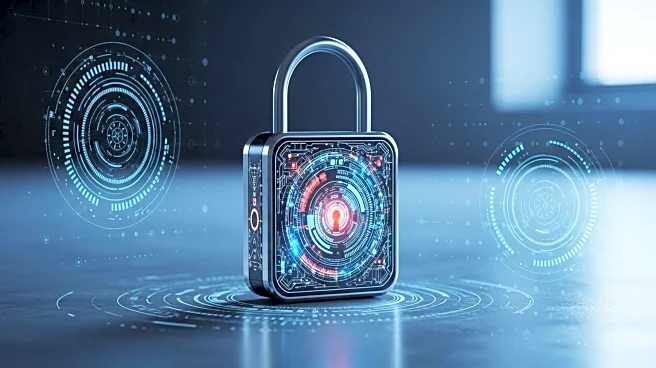What is the story about?
What's Happening?
AI coding assistants are being increasingly utilized in software development to improve productivity, but they are also introducing significant cybersecurity risks. According to research by application security firm Apiiro, while AI tools reduce shallow syntax errors and logic bugs, they simultaneously increase structural flaws such as privilege escalation paths and architectural design issues. The study found that AI-generated code is responsible for over 10,000 new security findings per month, including open-source dependencies, insecure coding patterns, exposed secrets, and cloud misconfigurations. These findings highlight the need for rigorous secure software development practices, including code review, static code analysis, and manual testing, to mitigate the risks associated with AI-generated code.
Why It's Important?
The integration of AI coding assistants in software development has the potential to streamline workflows and enhance productivity. However, the increase in cybersecurity vulnerabilities poses a significant threat to the integrity and security of software systems. As AI-generated code becomes more prevalent, developers and organizations must prioritize security measures to prevent potential breaches and data leaks. The findings underscore the importance of maintaining robust security protocols and ensuring that AI tools are subject to the same scrutiny as traditional coding practices. This development could impact industries reliant on secure software, such as finance, healthcare, and government, where data protection is paramount.
What's Next?
Organizations using AI coding assistants are likely to face increased pressure to implement comprehensive security measures to address the vulnerabilities identified in AI-generated code. This may involve investing in advanced security tools and training developers to recognize and mitigate risks associated with AI-driven software development. Additionally, regulatory bodies may consider establishing guidelines or standards for the use of AI in coding to ensure that security remains a top priority. As the technology evolves, ongoing research and collaboration between cybersecurity experts and AI developers will be crucial in balancing productivity gains with security needs.
Beyond the Headlines
The rise of AI coding assistants raises ethical and legal questions about accountability in software development. As AI tools become more autonomous, determining responsibility for security flaws and breaches may become complex. Developers and organizations must navigate these challenges while ensuring compliance with existing regulations and standards. Furthermore, the long-term implications of AI-driven coding on the software development industry could lead to shifts in workforce dynamics, with a greater emphasis on cybersecurity expertise and AI literacy.

















